Bali is one of the most family-friendly destinations in Asia, offering a perfect mix of warm hospitality, natural beauty, and cultural depth. But beyond the beaches and resorts, Bali also offers a unique opportunity to help your kids connect with nature and learn why it's worth protecting.
This guide is for parents who want more than just a vacation who want to create meaningful memories while giving their children a deeper appreciation of the environment and the world around them. Here's how to plan a trip to Bali that balances fun, comfort, and eco-conscious lessons your kids will remember for years.
Family Activities in Bali: Why Teaching Kids About Nature During Travel Matters
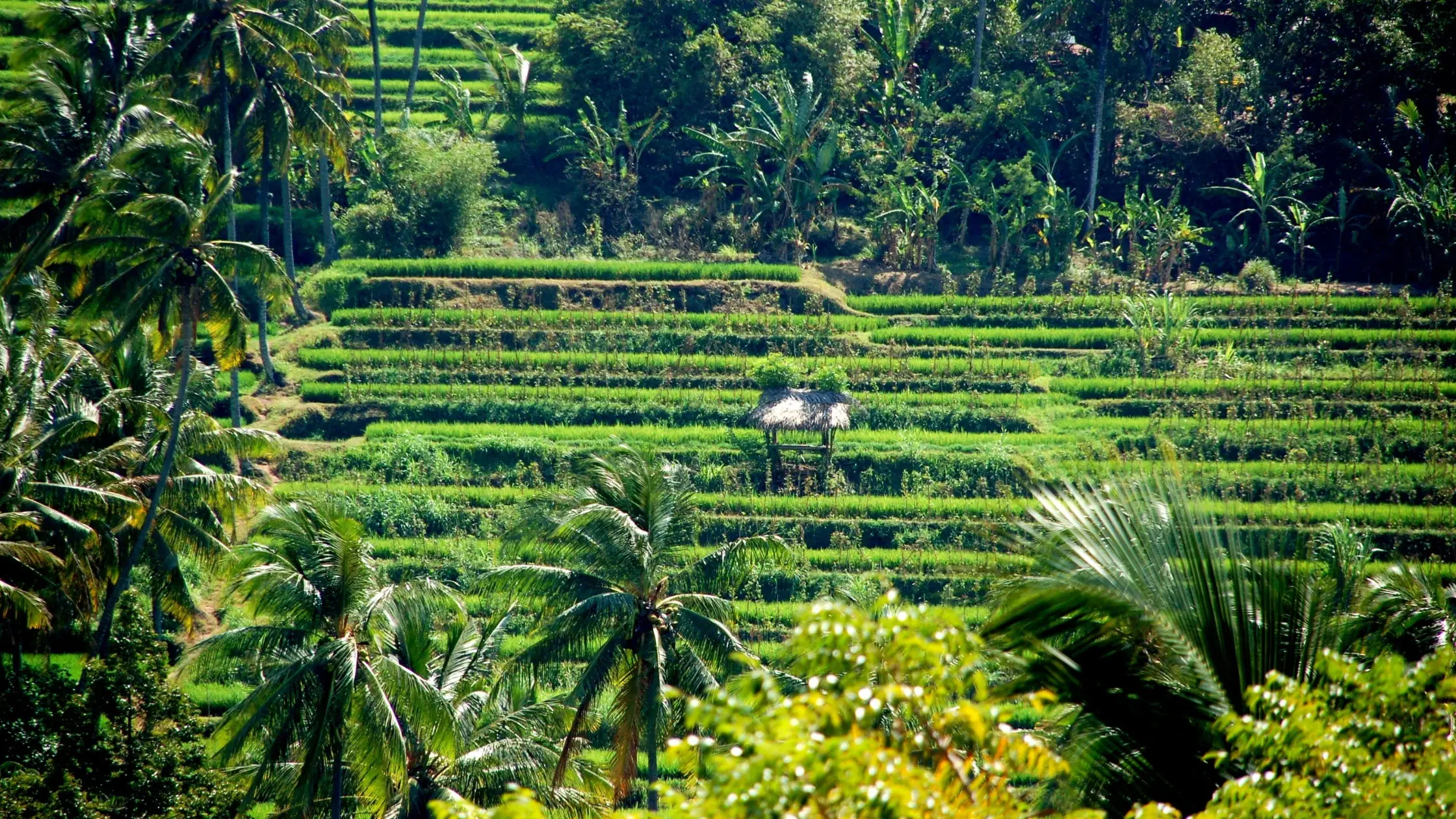
Image by Feelgoodpics from pixabay
Vacations aren’t just a time to relax, they’re also a chance for children to step outside their everyday routines and see the bigger picture. Research shows that children who spend time in nature activities for kids tend to have better emotional well-being, are more empathetic, and develop stronger environmental awareness as they grow up.
Bali offers countless opportunities for families to explore nature together, deepening their connection to the environment.
Bali’s lush landscapes, diverse ecosystems, and welcoming culture create the ideal backdrop for these lessons. Whether it’s watching crabs scuttle through mangroves or understanding how rice paddies support entire villages, the island can spark curiosity and respect for the natural world.
For parents looking for meaningful family activities in Bali, introducing children to nature through travel also helps them build confidence and curiosity. Exploring Bali’s outdoors gives kids the chance to interact directly with plants, animals, and even local people who depend on these environments. They begin to see nature as something alive and interconnected, rather than just scenery.
One of the best ways to foster this connection is by including guided, educational tours in your itinerary. For example, a mangrove canoe tour is not just a fun paddle, it’s an opportunity for kids to learn how mangroves protect the coastline and provide shelter for countless species. Activities like these give children a hands-on understanding of sustainability, something classroom lessons often can’t match.
Another benefit of teaching kids about nature during travel is that it nurtures gratitude and mindfulness. Away from screens and routines, children begin to notice the small wonders like watching a bird nesting above the water, observing crabs moving along the shore, or fish gliding through clear shallows. Many children also enjoy engaging in art by drawing or painting what they see in nature, which helps them express their creativity and appreciation for the environment. It helps them slow down, appreciate their surroundings, and feel a sense of responsibility toward protecting these fragile environments.
By weaving kids-friendly Bali tours into your trip, you’re not only giving your children unforgettable memories but also planting the seeds for a lifelong respect for the environment. This is the kind of travel that creates not just happy moments, but meaningful ones too.
Why Nature-Focused Travel Enriches Family Bonds

Image by Gustavo Fring from Pexels
Traveling as a family is already a wonderful opportunity to grow closer, but choosing to focus on nature activities for kids makes it even more rewarding. When you spend time together in natural settings away from screens, traffic, and crowds you create an environment where real connection can flourish. Parents often notice that their children become calmer, more observant, and even more talkative when surrounded by green spaces or the gentle rhythm of water.
Adding nature-based experiences into your Bali trip helps deepen those bonds by sharing something meaningful. Activities like walking barefoot on the sand, planting a mangrove seedling, or watching colorful fish through a glass-bottom boat are simple yet impactful moments you’ll remember as a family. Children tend to hold onto these memories much longer than they do of standing in long lines or shopping in busy streets. These moments allow them to experience awe and wonder seeing a turtle hatchling up close, hearing the songs of birds in a mangrove forest, or paddling quietly through a lush waterway. All of these activities ensure everyone has a great time together, making your family trip truly memorable.
For parents, there’s a unique joy in seeing their kids light up with discovery and curiosity, asking questions about what they see, and forming a bond with the world around them. These experiences don’t just bring the family closer; they plant the seeds of respect and love for the environment in your children’s hearts. And later, when they recall their time in Bali, it’s these special, shared moments that will stand out as the highlight of your trip.
When Is the Best Time for a Nature-Centered Family Trip?
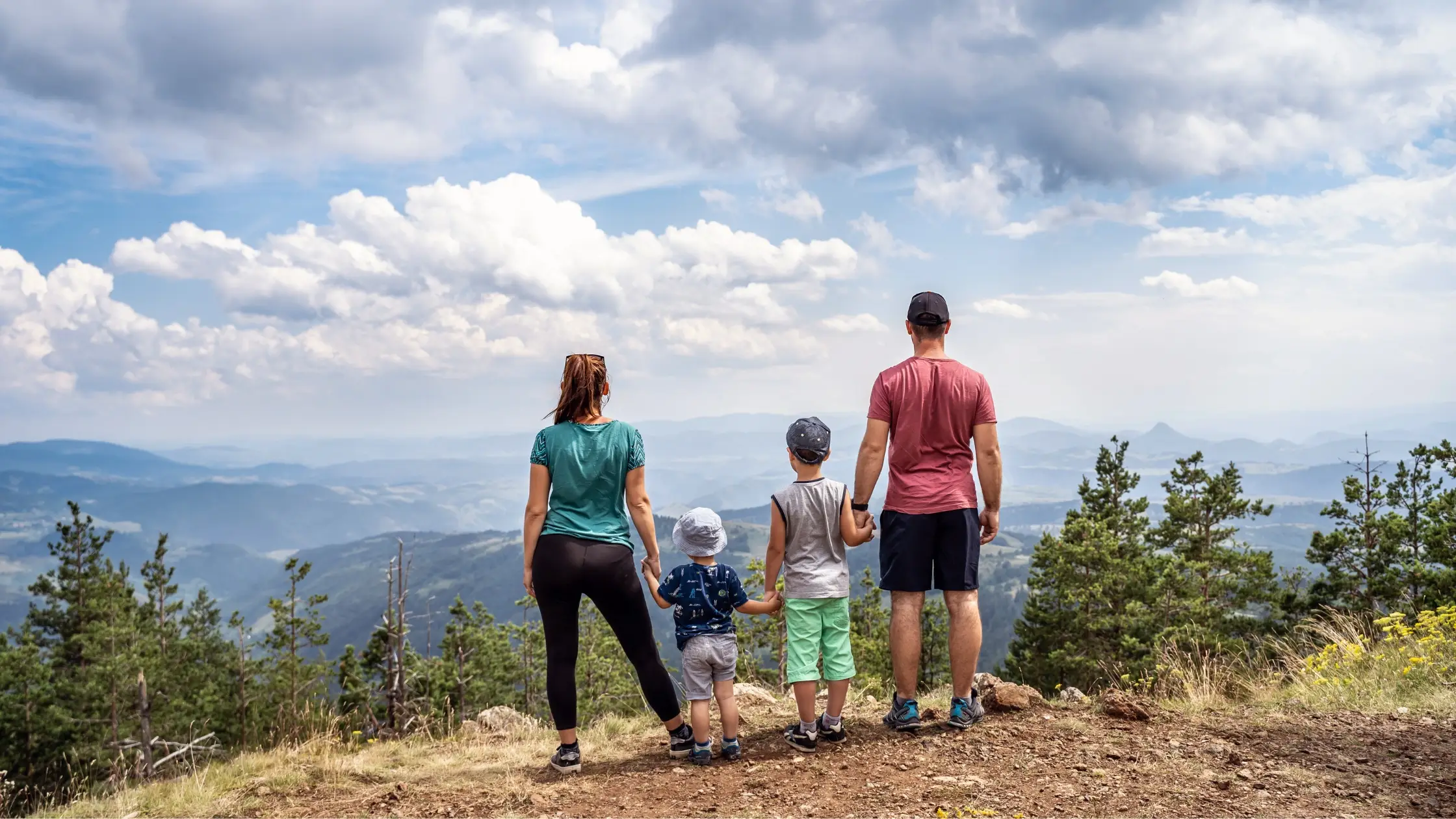
Image by Valek from Getty Images
Bali has a tropical climate, so timing your visit is key if
you want to make the most of your family activities in Bali. The dry season,
from April to October, is widely considered the best time for families who want
to spend lots of time outdoors. During these months, the weather is sunny and
warm with lower humidity, making it perfect for exploring beaches, rice
terraces, and nature-based attractions without worrying about frequent rain.
Calm seas also make activities like swimming, canoeing, and snorkeling more
enjoyable and safe for kids.
If you plan your trip during the wet season, from November
to March, you can still have a wonderful experience but it’s smart to adapt
your itinerary. Mornings tend to be drier while rain showers usually come in
the afternoon, so schedule outdoor adventures earlier in the day. The wet
season is also when Bali’s forests and rice fields are at their greenest,
offering stunning backdrops for family photos. Plus, because it’s considered an
off-peak season, you’ll find fewer crowds and better prices on accommodations
and tours.
For families who don’t mind a bit of drizzle, there are
still many enjoyable and safe activities to consider even when it rains. A
guided evening mangrove canoe tour is an excellent example: these tours provide
easy access to nature even during the rainy season, as calm waters sheltered by
mangroves remain accessible in light rain. The experience of paddling through
the quiet mangrove forest at dusk feels magical no matter the weather. The
cooler temperatures during rainy days also make it more comfortable for younger
kids who tire quickly in the heat.
Whenever you decide to visit, pack appropriately for the
season: sunscreen, hats, and water bottles are must-haves during the dry
months, while ponchos, quick-dry clothes, and waterproof bags come in handy
during the wet season. By choosing the right time or simply being
prepared for Bali’s tropical conditions you can ensure your nature-centered
family trip is comfortable, memorable, and full of meaningful moments.
Bali has a tropical climate, so timing your visit is
key if you want to make the most of your family activities in Bali. The dry
season, from April to October, is widely considered the best time for families
who want to spend lots of time outdoors. During these months, the weather is
sunny and warm with lower humidity, making it perfect for exploring beaches,
rice terraces, and nature-based attractions without worrying about frequent
rain. Calm seas also make activities like swimming, canoeing, and snorkeling
more enjoyable and safe for kids.
If you plan your trip during the wet season, from November
to March, you can still have a wonderful experience but it’s smart to adapt
your itinerary. Mornings tend to be drier while rain showers usually come in
the afternoon, so schedule outdoor adventures earlier in the day. The wet
season is also when Bali’s forests and rice fields are at their greenest,
offering stunning backdrops for family photos. Plus, because it’s considered an
off-peak season, you’ll find fewer crowds and better prices on accommodations
and tours.
For families who don’t mind a bit of drizzle, there are
still many enjoyable and safe activities to consider even when it rains. A
guided evening mangrove canoe tour is an excellent example: these tours provide
easy access to nature even during the rainy season, as calm waters sheltered by
mangroves remain accessible in light rain. The experience of paddling through
the quiet mangrove forest at dusk feels magical no matter the weather. The
cooler temperatures during rainy days also make it more comfortable for younger
kids who tire quickly in the heat.
Whenever you decide to visit, pack appropriately for the season: sunscreen, hats, and water bottles are must-haves during the dry months, while ponchos, quick-dry clothes, and waterproof bags come in handy during the wet season. By choosing the right time or simply being prepared for Bali’s tropical conditions you can ensure your nature-centered family trip is comfortable, memorable, and full of meaningful moments.
Choosing the Right Base for Families
Once you’ve chosen the right base for your family trip, it’s time to think about what kind of activities will make your kids fall in love with nature and leave a lasting impression. Bali offers a wide variety of services for families, from guided tours to educational workshops, ensuring there are options for every interest and age group. These nature activities for kids in Bali are designed to be safe, fun, and educational while supporting the island’s environment and communities.
Cycling Through Rice Terraces
One of the most iconic family activities in Bali is cycling through its breathtaking rice terraces, especially in Ubud or Jatiluwih. Family-friendly cycling tours are designed with younger travelers in mind, providing smaller bikes, safety helmets, and a leisurely pace that allows everyone to enjoy the journey. As your kids ride along quiet paths winding through emerald-green paddies, they’ll see farmers tending to their fields and water flowing through ancient subak irrigation channels, a UNESCO-recognized cultural practice. These terraces and the subak system are an important part of Bali's cultural heritage, reflecting the island's deep-rooted traditions and sustainable way of life.
This activity is more than just exercise, it’s an introduction to Bali’s rural life and environmental harmony. Parents can use the ride as a teaching moment, explaining how rice terraces are created to conserve water and how the local communities rely on the land. It’s a peaceful yet interactive way to show children that sustainable agriculture has existed here for centuries and it makes for unforgettable photo opportunities, too.
Organic Farm Visits
Image by ayana.com
For a more hands-on encounter with Bali’s natural bounty, take your family on an organic farm visit. Many farms in Bali welcome visitors and allow children to actively participate in daily activities like planting vegetables, harvesting fruit, feeding animals, or even learning how composting works. These experiences help kids understand where food comes from and why organic farming practices are healthier for the environment and for us.
Some farms also include workshops where kids can make herbal teas, press coconut oil, or try planting seeds in their own pots to take home. Families can also eat fresh, organic produce right on the farm, enjoying the flavors of Bali straight from the source. Parents often find that these tours spark great conversations about why buying local and eating natural foods are important choices for a sustainable future. Visiting an organic farm is also a perfect way to break up your itinerary with a calm, shaded morning or afternoon in Bali’s cool highlands.
Mangrove Planting and Cleaning
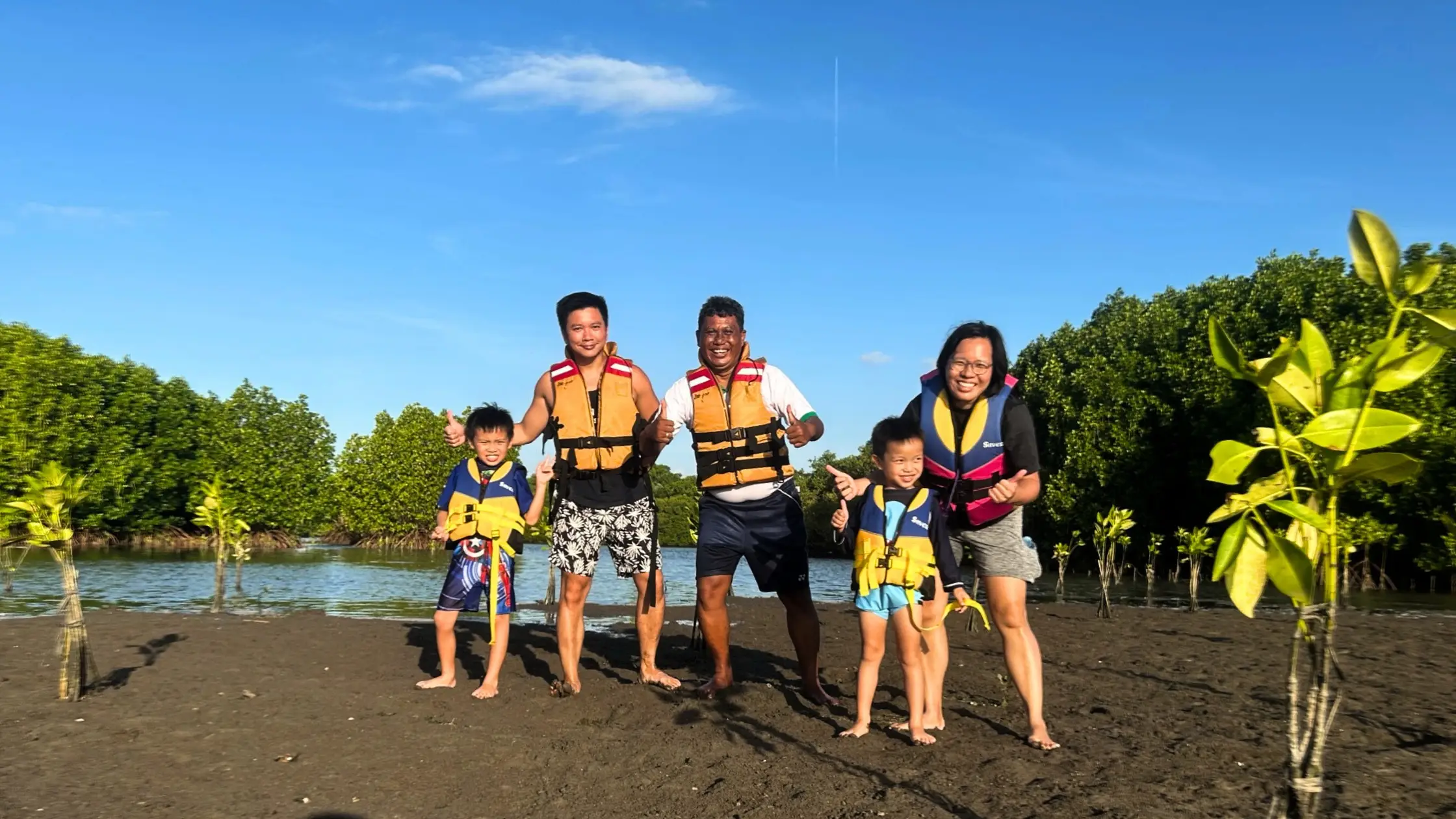
Perhaps one of the most impactful nature activities for kids in Bali is joining a mangrove planting or cleaning tour. The mangrove forests around South Bali are vital ecosystems that protect the coastline, filter water, and shelter countless marine species yet they’re often overlooked. On tours like the mangrove canoe tour, families can paddle through tranquil waterways while guides explain how mangroves help combat climate change and preserve marine biodiversity.
As part of the experience, you can choose to add a planting or cleaning session, where kids help plant young mangrove saplings or collect plastic waste from the water. Children are also encouraged to adopt a tree, taking responsibility for monitoring its growth and observing changes over time as part of the activity. It’s a simple, fun, and rewarding way to make a real difference while creating lasting memories. For families who prefer a more atmospheric experience, the evening mangrove canoe tour offers the same peaceful connection to nature as the sun sets. These activities are a beautiful reminder to your children that even small efforts can help protect our planet.
Eco-Friendly Cooking Classes
Food is one of the best ways to experience Balinese culture and eco-friendly cooking classes let kids learn how to cook while discovering the value of sustainability. Many family-oriented cooking schools in Bali emphasize the use of organic, locally sourced ingredients and teach participants how to minimize food waste.
Children can help pick vegetables straight from the garden, learn how to make traditional dishes, and even help press fresh coconut milk. Some classes also include arts activities, such as decorating dishes or creating food-themed crafts, making the experience even more engaging for kids. Parents can use the experience to explain how supporting local farmers and reducing food waste are part of sustainable travel. Plus, you all get to sit down and enjoy a delicious Balinese meal together afterward.
Wildlife Conservation
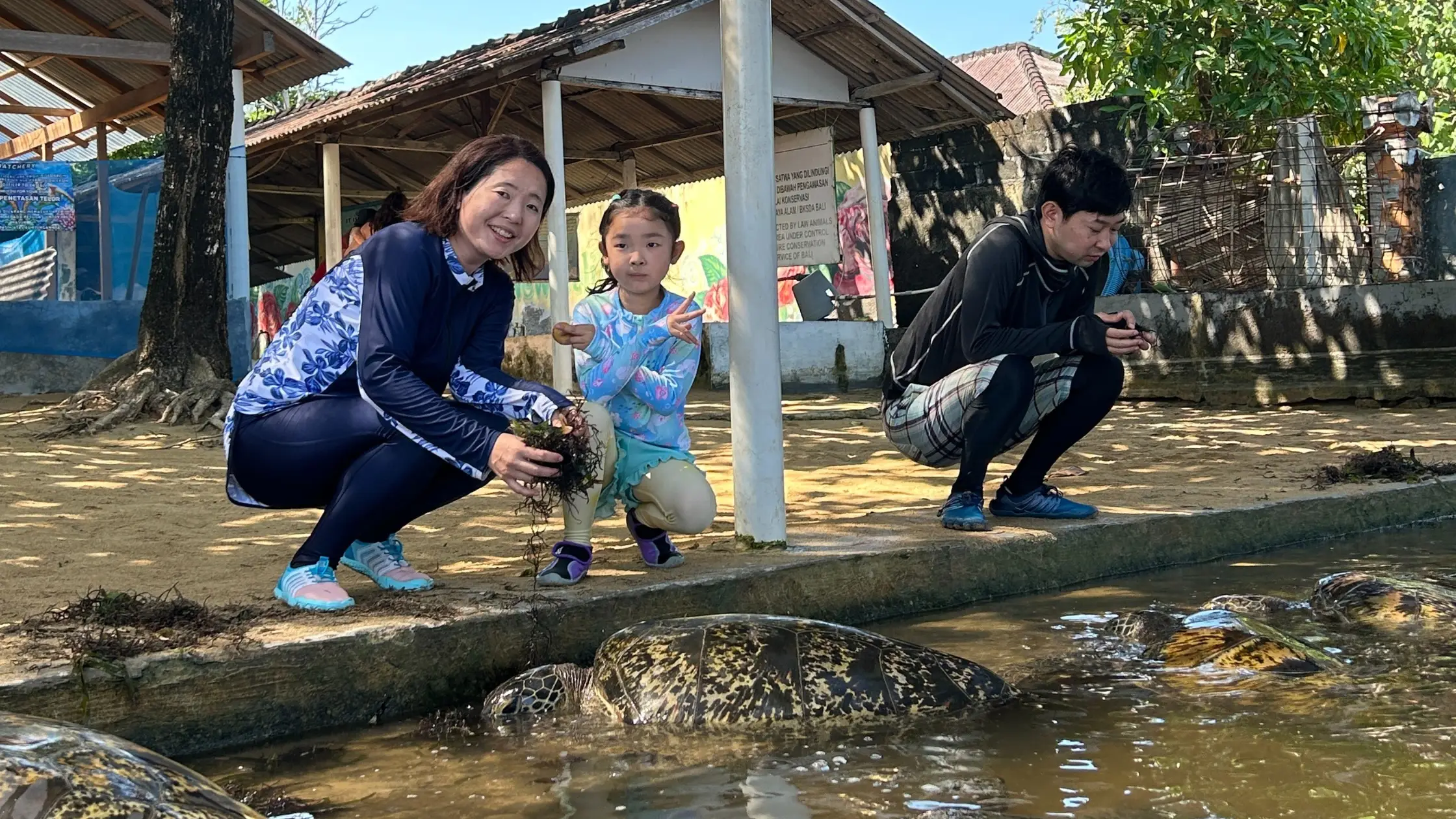
For animal-loving kids, participating in a wildlife conservation activity can be both exciting and eye-opening. Several centers in Bali focus on rescuing and rehabilitating turtles, birds, and other endangered species. Places like Turtle Island allow children to see baby turtles up close, learn about their life cycle, and even release them into the sea as part of conservation programs.
Another great way to appreciate marine life responsibly is by joining the Tropical Snorkeling & Mangrove Cruise. This family-friendly tour lets kids observe colorful fish and corals in their natural habitat without disturbing the ecosystem. Parents can use this opportunity to explain how healthy mangroves and reefs are interconnected and why protecting these areas is vital for wildlife survival.
These experiences are perfect opportunities to teach your children why protecting wildlife and preserving habitats is so important, especially on an island where development continues to threaten natural areas. Parents can also explain how being responsible travelers means choosing ethical animal encounters rather than exploitative attractions.
Community-Based Tours
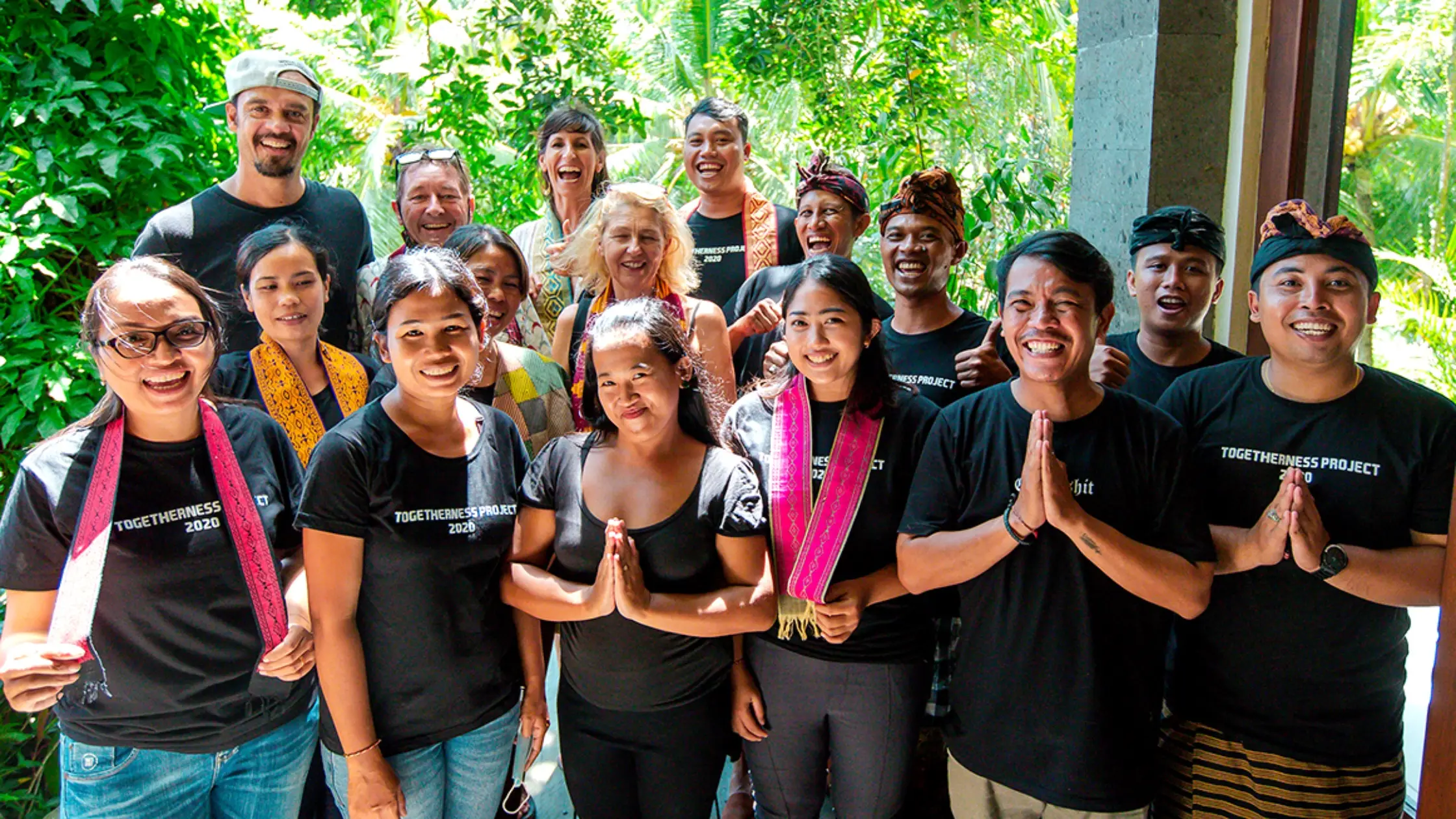
Image source: togethernessproject.net
Lastly, community-based tours are a fantastic way to expose your kids to the human side of sustainability. These tours take you into Balinese villages where locals share their way of life, from weaving baskets and making offerings to farming and fishing. Families benefit from the guidance of community members during these tours, gaining valuable insights into traditional practices and sustainable living. Children get to interact with villagers, try hands-on crafts, and experience the close relationship between culture and environment.
Many of these tours directly benefit the communities you visit, making it a great way to teach your kids about supporting local economies and respecting different ways of life. It’s also a chance to remind them that sustainability isn’t just about protecting nature, it’s about helping people, too.
By weaving these activities into your Bali itinerary, you not only ensure that your children have fun but also give them a deeper appreciation of the world around them. These kid-friendly Bali tours make it easy to turn your family vacation into an inspiring journey toward a more eco-conscious future.
Building Appreciation Through Small Actions
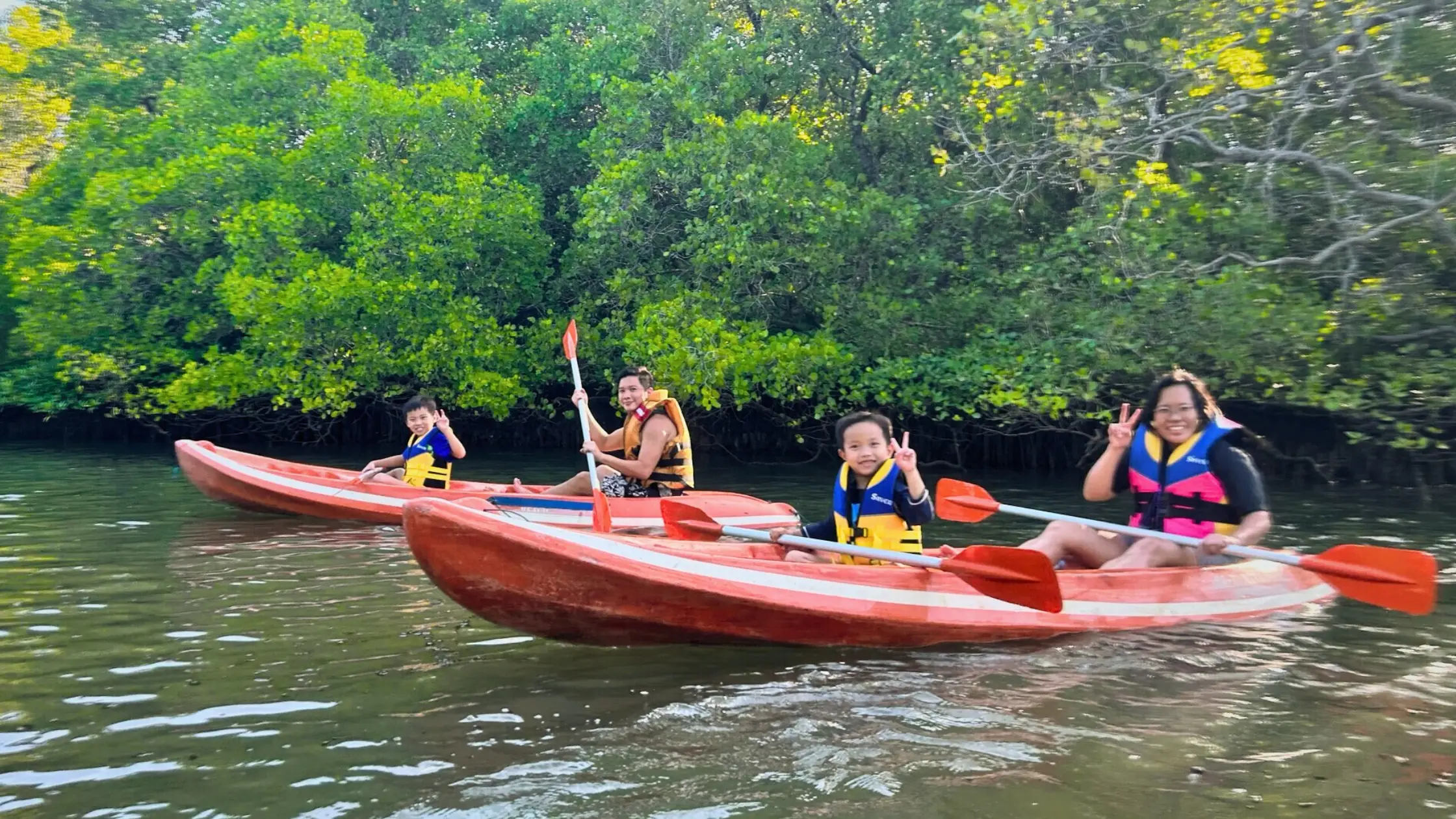
Part of teaching respect for nature is modeling it through your own behavior. Children often learn best by watching what adults do, so make your actions count. Start with simple, everyday habits that show you care about the environment like bringing your own reusable water bottles, saying no to single-use plastics, and picking up trash when you see it on the beach or trail. Even something as small as sorting your trash properly at your villa or hotel helps kids understand that small choices add up.
You can also make these lessons hands-on by turning them into family activities. For example, pack a bag and gloves and spend 20 minutes cleaning up a small section of beach together before you swim. Explain how plastic waste hurts marine life and how clean beaches make the ocean healthier. Kids usually feel proud when they see they’re making a visible difference. Encourage your family to get creative by making crafts from recycled materials found in your natural surroundings like building bird feeders or art projects using leaves, shells, or driftwood.
Many nature-focused tours also incorporate conservation work into the experience. Joining a mangrove planting session as a family is a fantastic way to leave a positive impact behind and help restore these critical coastal ecosystems. Kids enjoy getting muddy and learning about how mangroves protect shorelines and provide homes for birds, crabs, and fish. Other small but meaningful activities could include using reef-safe sunscreen when snorkeling or simply being quiet and respectful when walking through a temple forest or wildlife sanctuary.
These small actions don’t just make your trip more eco-friendly, they help your children connect emotionally with nature by immersing them in Bali's natural surroundings. They start to see themselves as part of the solution, which builds a deeper sense of responsibility and care for the world around them. Over time, these early lessons can help raise a generation of travelers who are thoughtful, respectful, and committed to protecting our planet.
Sustainable Travel Practices for Families
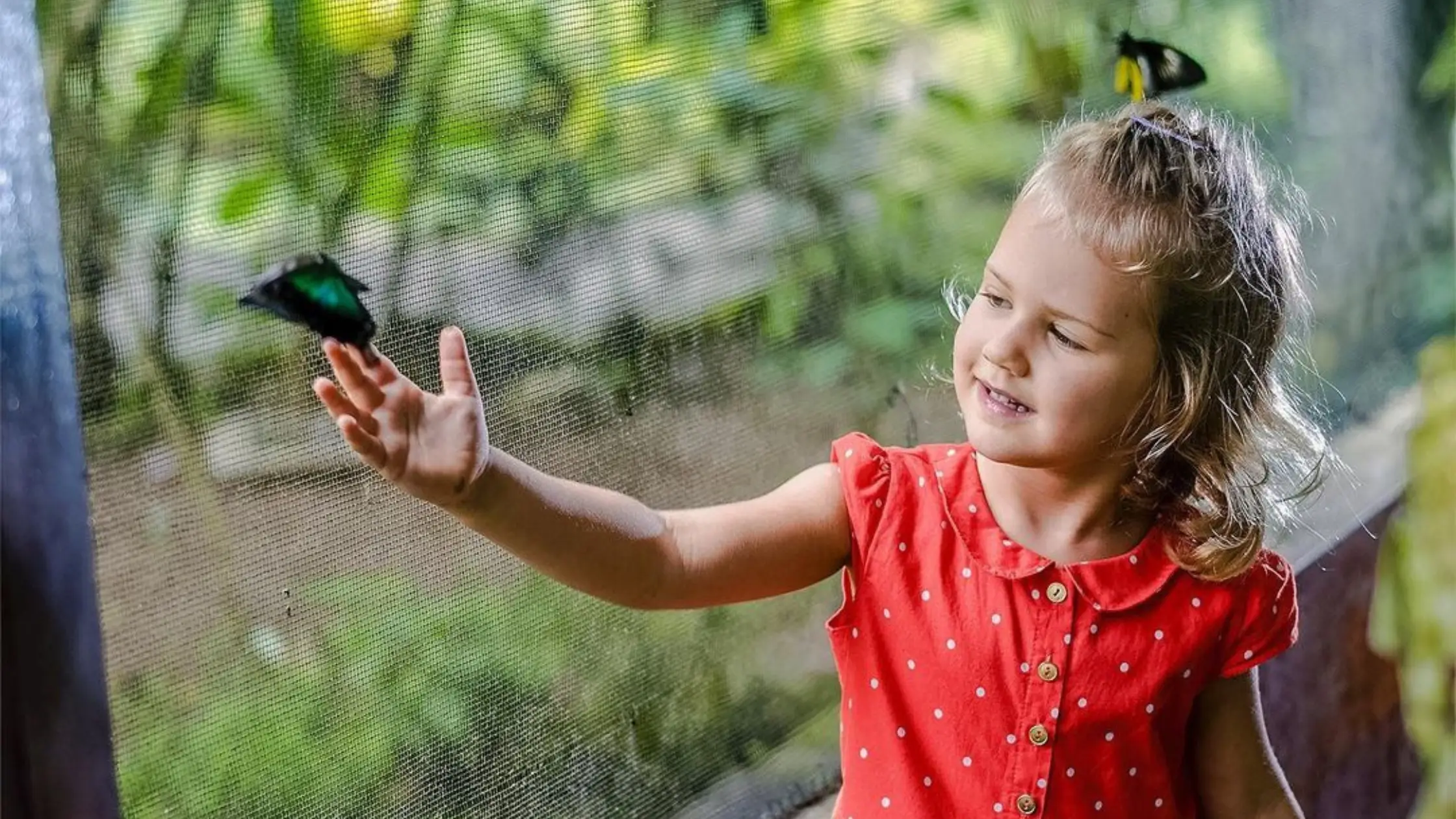
Image source: instagram @balibutterflypark
Traveling as a family is a wonderful way to explore the natural world, discover new cultures, and create memories that last a lifetime. But as we set out to experience the beauty of places like Bali, it’s important to think about how our choices can help protect the environment and support a sustainable future for the planet and its people.
Reducing Your Environmental Impact While Traveling
Every family trip is an opportunity to make a positive impact both on the places you visit and on your children’s understanding of the world. By adopting sustainable travel practices, you can help conserve natural ecosystems, reduce greenhouse gas emissions, and support local communities, all while having fun and learning together.
Start by choosing destinations and activities that prioritize environmental conservation. In Bali, for example, you can explore lush rice fields, hike through the Bedugul Highlands, or visit national parks teeming with local wildlife. These experiences not only connect your family with nature, but also support conservation efforts that protect the island’s unique biodiversity.
Where you stay matters, too. Look for accommodations that use natural materials, manage energy responsibly, and have waste management systems in place. Many eco-friendly hotels and resorts in Bali offer kids clubs focused on environmental education, giving children a fun way to learn about sustainability while you relax. Some even organize nature walks or gardening workshops, so your kids can get their hands dirty and see firsthand how small actions can make a big difference.
Daily habits also play a big role in reducing your environmental impact. Simple steps like bringing reusable water bottles, saying no to single-use plastics, and choosing local transportation whether it’s walking, biking, or hopping on public transport can significantly lower your family’s footprint. Supporting local businesses, from family-run restaurants to market stalls, helps boost economic growth in the local area and ensures your travel dollars benefit the communities you visit.
For a truly memorable and sustainable family day out, consider places like the FINNS Recreation Club. With its trampoline centre, water park, and kids club, it’s designed for year-round fun while also prioritizing environmental conservation through energy-saving initiatives and responsible waste management. Or head to the Bedugul Highlands, where you can spend an entire day exploring gardens, waterfalls, and hiking trails surrounded by natural beauty.
Tips for Planning a Family-Friendly, Nature-Focused Bali Trip
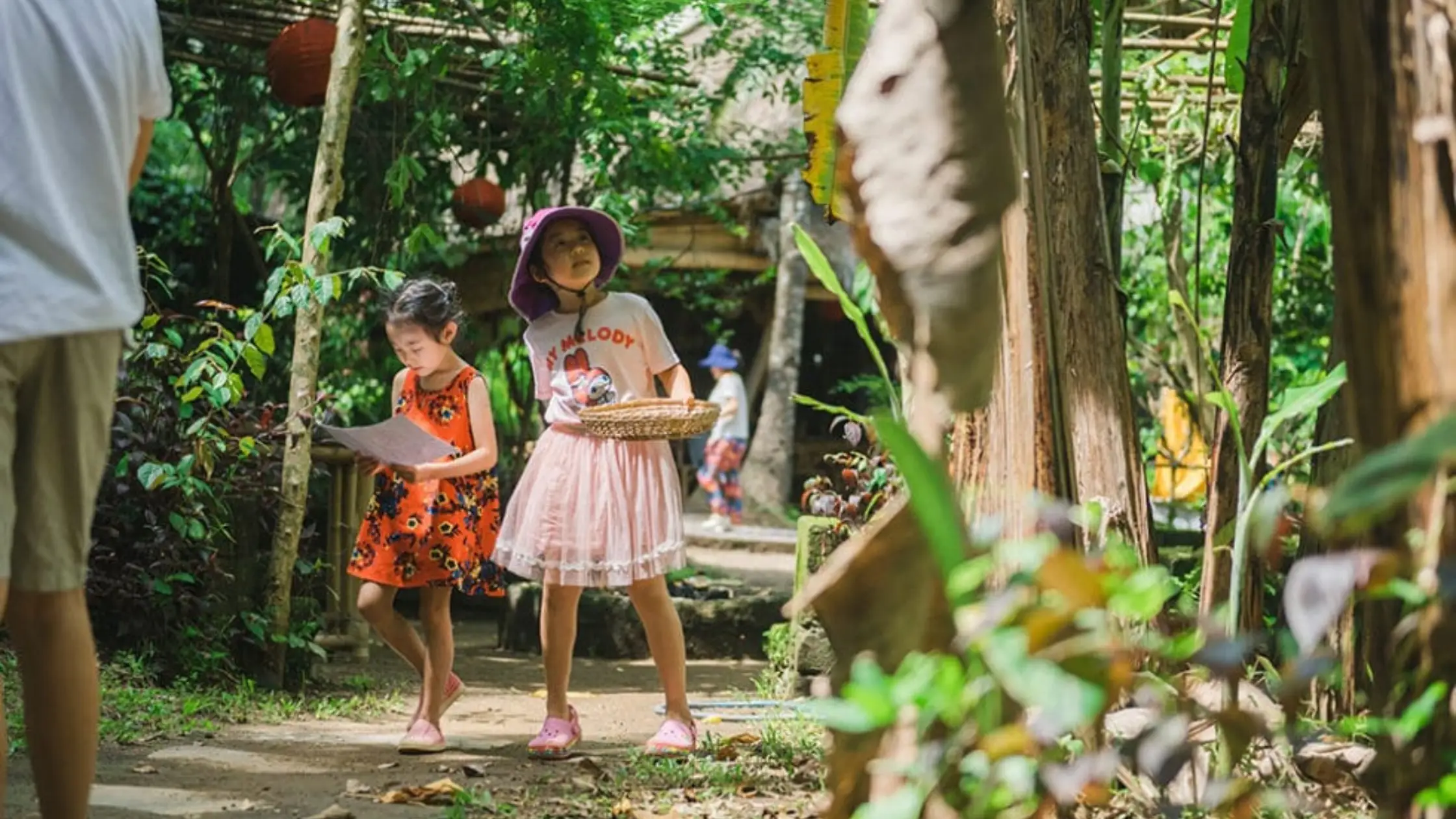
Image by greencampbali.com
Pick the Right Time of Year
The dry season from April to October is perfect for outdoor activities. Mild weather and calm seas make it easier for kids to enjoy nature walks, gentle canoe trips, or beach days without too much discomfort.
Choose Eco-Conscious Stays
Look for hotels and villas that support sustainable tourism. Many offer family rooms, serve locally-sourced food, and actively reduce their impact on the environment. Some even organize kid-friendly nature walks or workshops on Balinese culture.
Involve Kids in the Planning
Get your kids excited before you even leave home by showing them pictures of Bali's landscapes and wildlife. Let them help choose an activity or two, like visiting rice fields or going on a glass-bottom boat tour to see colorful fish.
Plan Downtime
A nature-focused trip doesn't have to mean nonstop activities. Build in plenty of time to just enjoy a quiet morning by the pool or a calm afternoon at the beach. Kids often learn the most when there's space to observe and ask questions.
Wrapping Up: Why This Kind of Trip Stays With Your Kids
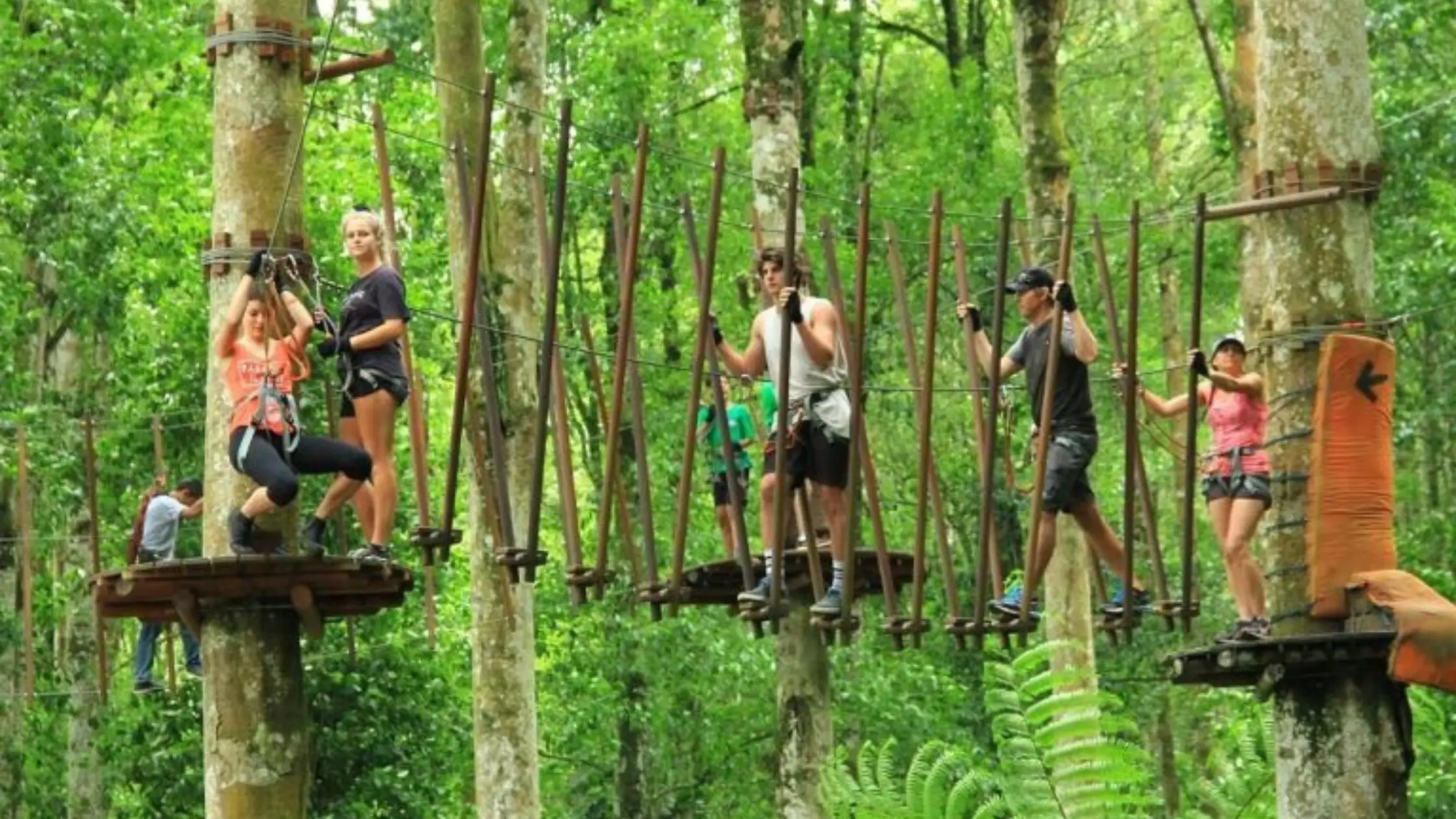
Image by viceroybali.com
Years from now, your children may not remember every detail of your trip, but they'll remember how it felt to paddle through quiet mangrove waters, see fish darting below a glass-bottom boat, or release a baby turtle into the sea.
By planning your trip with care and making room for moments of learning and wonder, you're helping your kids build not just memories, but values. Values that will hopefully guide them to be more thoughtful, nature-loving adults.
Bali is waiting and it's full of chances to connect as a family while showing your kids just how amazing and important nature can be.

 EN
EN JP
JP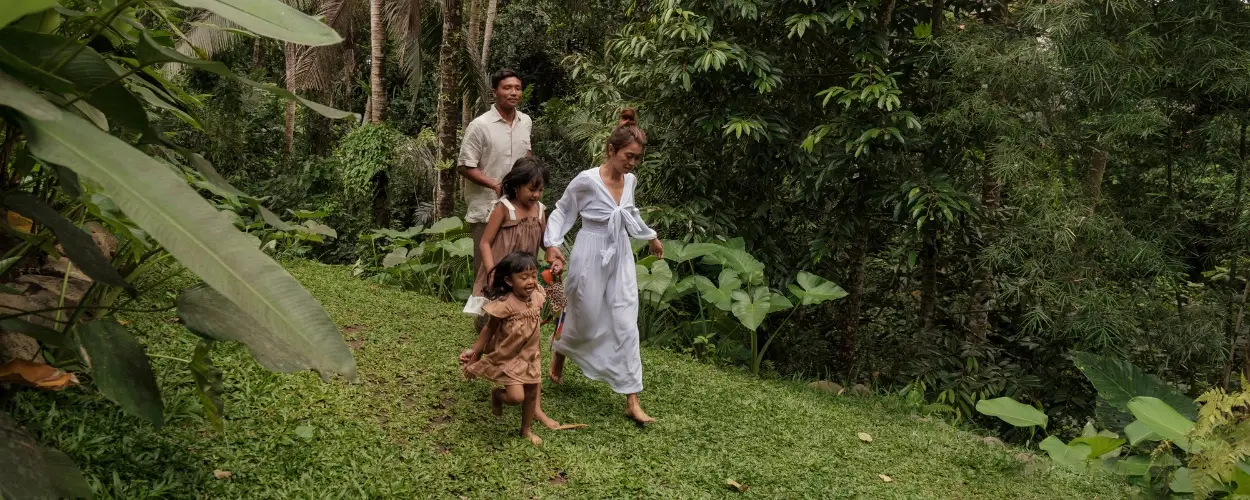
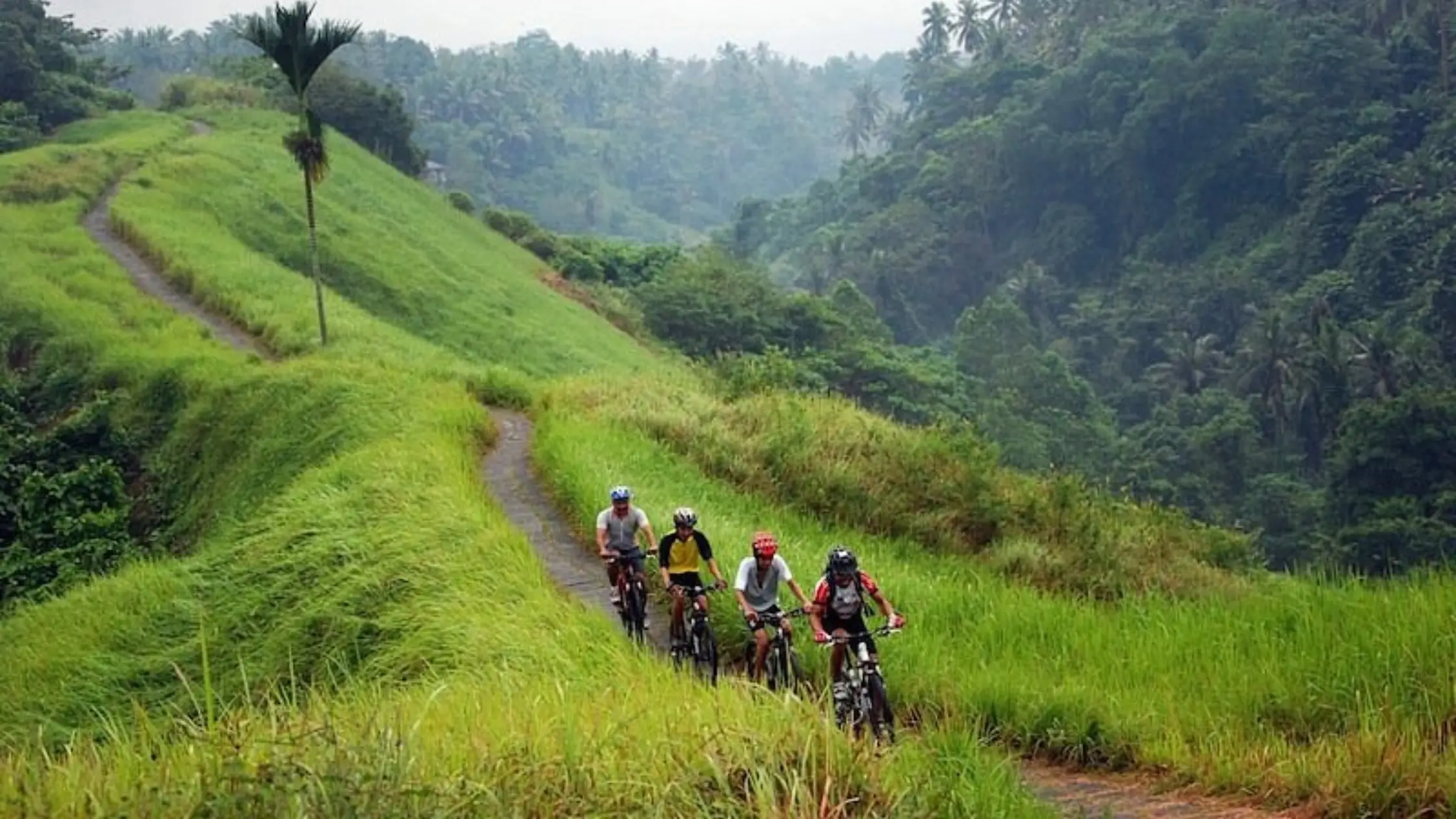
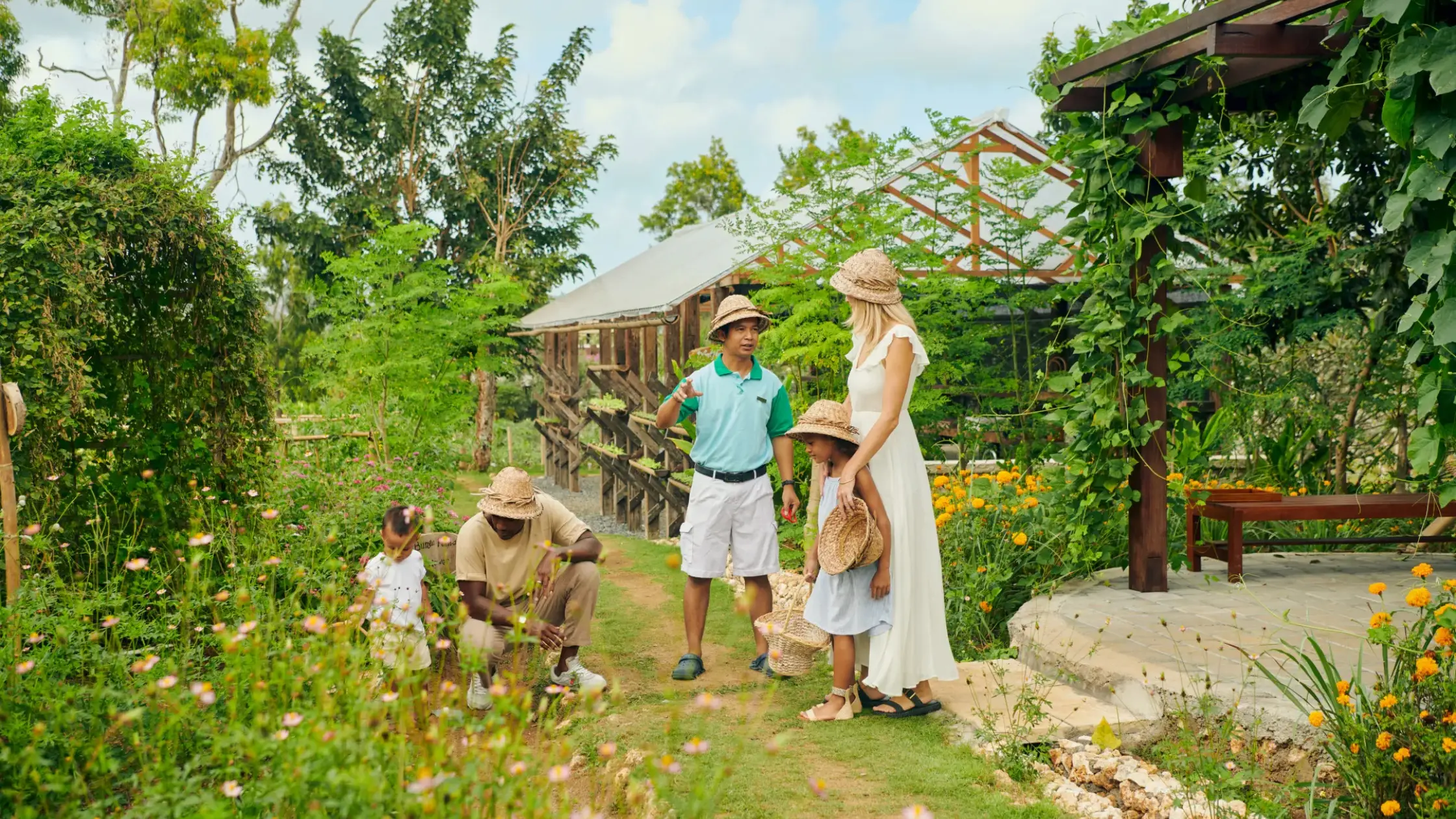



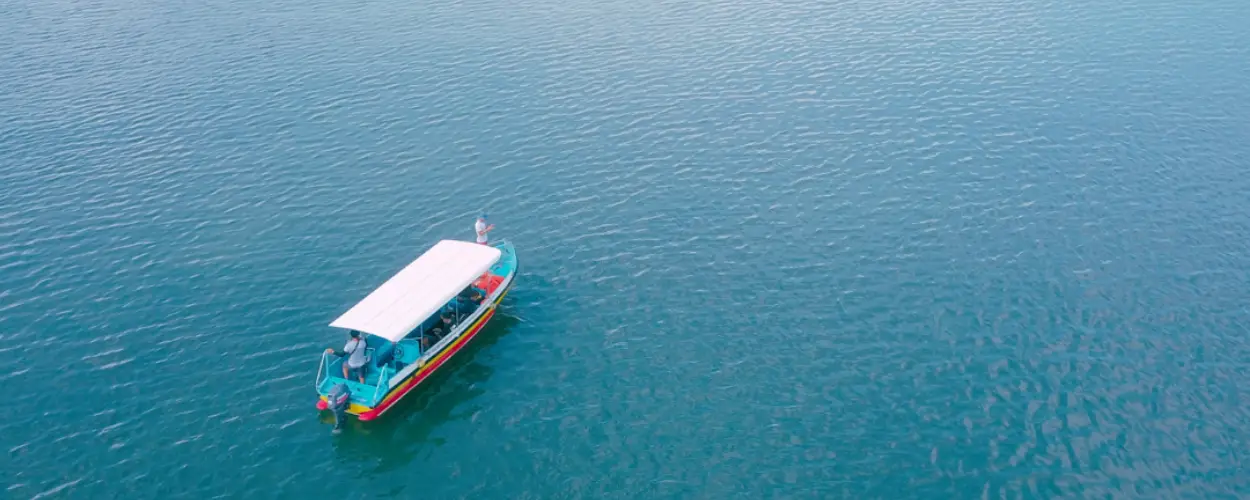
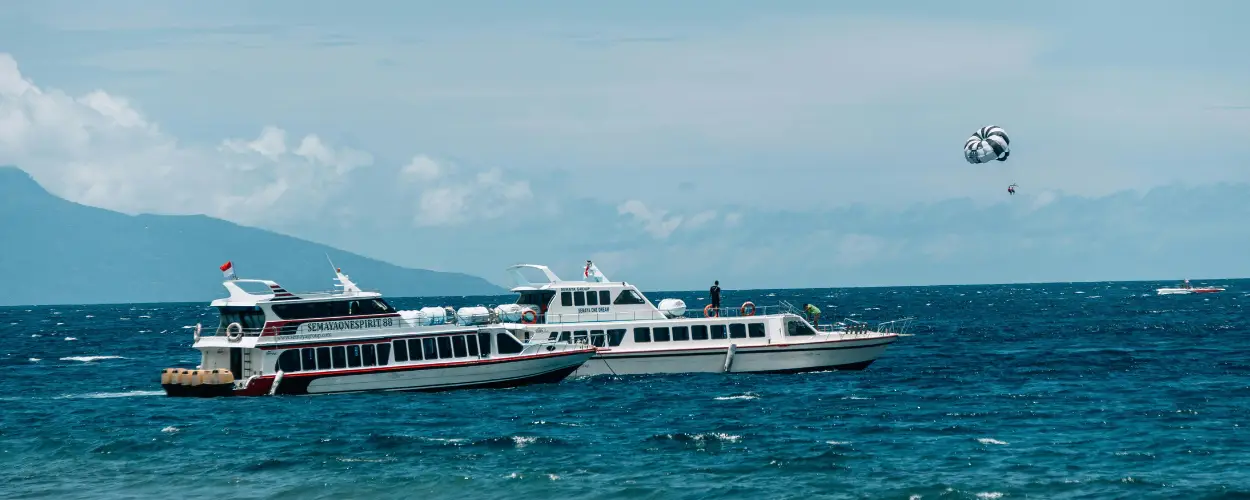
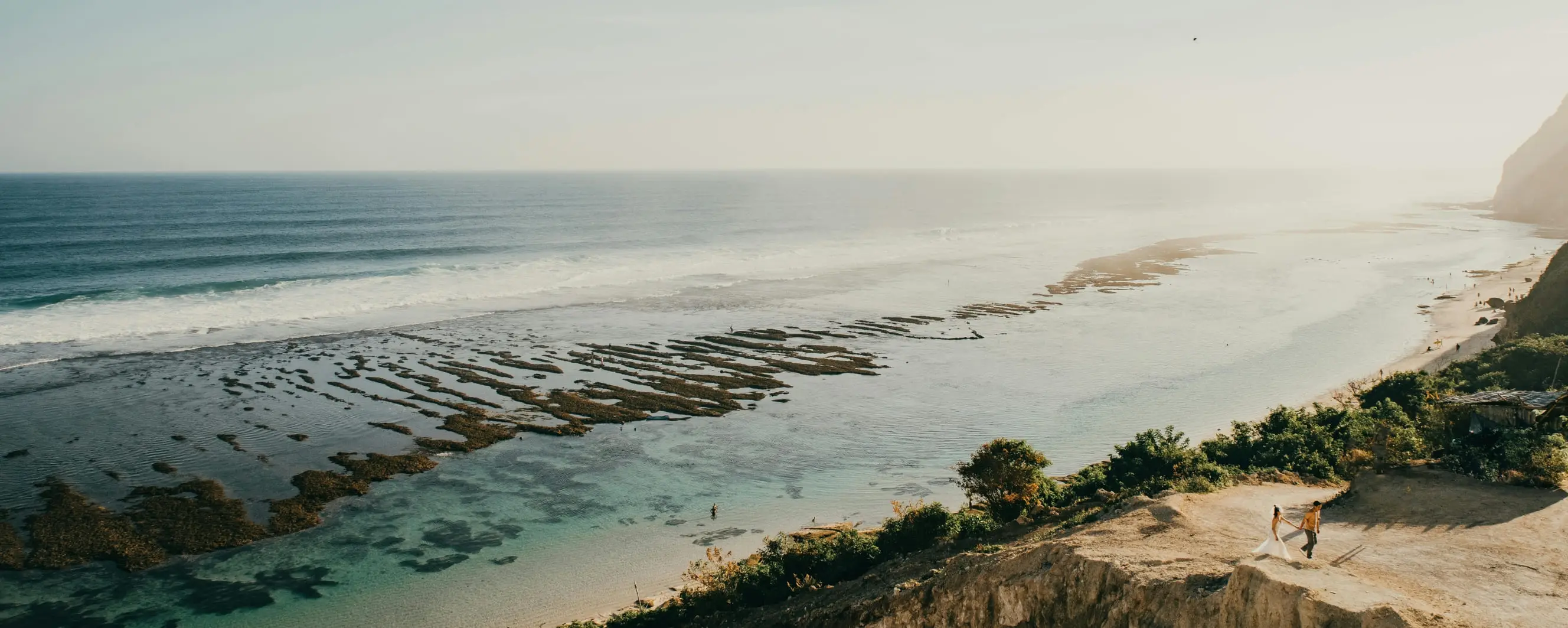
comments